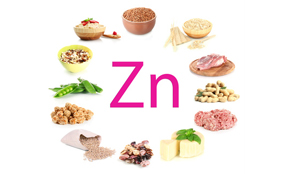by
Stepy —
March 25, 2019
- In our diet, every single nutrient plays its own part. Zinc is one of them.
- “Zinc is responsible for a number of different functions in the human body and it helps stimulate the activity of 100 different enzymes,” shares Medical News Today.
- A little bit of zinc goes a long way.
- Zinc deficiency has been shown to cause a diverse range of conditions such as fatigue, poor sexual health, premature aging, low immunity, macular degeneration and so much more.
- Including foods that contain zinc in your diet is important.
- Start adding foods rich in zinc in your diet.
- Here are some of the top foods containing zinc:
- Raw Oysters (they are the highest natural source of zinc, ten times higher, in fact, than the next source, which is red meat)
- Crab
- Lamb and red meat
- Raw dark chocolate
- Peanuts
- Wheat germ
- Pumpkin seeds
- Squash seeds
-
- Let’s look at the health benefits of zinc.
- Boosts libido:
- Zinc has been attributed with the ability to boost low male libido as well as low female libido and increase fertility.
- Eye health:
- Zinc is essential for eye health, as it prevents the cellular damage in the retina. This helps prevent age related diseases like macular degeneration, according to a study published in the Archives of Opthamology.
- Immune system function:
- Zinc is necessary for the body to activate T lymphocytes (T cells). The function of T-cells is essential for controlling the responses of the immune system and attacking infected or cancerous cells according to the European Journal of Immunology.
- A study published by the American Journal of Clinical Nutrition, people who are zinc-deficient are much more vulnerable to a variety of pathogens.
- Memory and learning:
- Zinc may be great for our brain, especially when it comes to learning. A study from the University of Toronto showed that zinc plays an essential role in the way we communicate with each other, which also affects the way we learn and store memories.
- Maintain sense of smell and taste:
- Zinc has unique benefits and it includes the improvement of the senses of taste and smell. Taste buds and olfactory cells are zinc-reliant. Zinc is necessary for the development of these specific cells.
- Studies have shown that raising zinc levels can heighten these two senses.
- Skin health:
- Helps with acne and eczema.
- Zinc has shown health benefits for the skin when dealing with skin diseases including eczema and acne.
- A study showed that when participants who had acne took zinc and their symptoms healed quicker.
- Zinc works by regulating the production of oil in the skin, and may also regulate the hormones that cause acne.
- As zinc is essential for a health immune system, it can help fight skin disorders.
- Supports bone an joint health:
- Zinc in bone declines with age, especially for women following menopause.
- Zinc is required to activate genes involved with protein synthesis, which applies to our overall body and of course bones.
- A study published in the Nutrition Research and Practice journal shows that zinc may even help bone formation.
- Zinc deficiency decreases bone weight and delays growth in bone metabolism.
- Treats cold:
- Zinc is important for treating colds .
- A study published in the Open Respiratory Medicine Journal, zinc lozenges were shown to reduce the duration of the common cold by up to 40%.
- Wound healing:
- Zinc has shown benefits in the areas of skin and mucous membrane protection. A Swedish study showed topical zinc has the ability to reduce inflammation and bacteria growth, therefore healing wounds faster.
- Note: None of the information in our website is intended to diagnose, treat, cure or prevent any illness or disease. The content on our website is for educational purposes only.
- For an immune booster smoothie.
- For the top brain foods.
-
- REFERENCES:
- 1. “What Is Zinc? What Are the Benefits of Zinc?” Medical News Today. MediLexicon International, n.d. Web. 12 Dec. 2013.
- 2. “Zinc.” Office of Dietary Supplements. National Institutes for Health, n.d. Web. 11 Dec. 2013.
- 3. “Zinc and Immune Function: The Biological Basis of Altered Resistance to Infection.” National Center for Biotechnology Information. U.S. National Library of Medicine, n.d. Web. 12 Dec. 2013.
- 4. “A Randomized, Placebo-controlled, Clinical Trial of High-dose Supplementation with Vitamins C and E, Beta Carotene, and Zinc for Age-related Macular Degeneration and Vision Loss: AREDS Report No. 8.” National Center for Biotechnology Information. U.S. National Library of Medicine, n.d. Web. 12 Dec. 2013.
- 5. “Zinc’s Role in the Brain.” University of Toronto Media Room. University of Toronto, n.d. Web. 12 Dec. 2013.
- 6. Hemilä, Harri. “Zinc Lozenges May Shorten the Duration of Colds: A Systematic Review.” National Center for Biotechnology Information. U.S. National Library of Medicine, 23 June 2011. Web. 12 Dec. 2013.
- 7. “Studies on Zinc in Wound Healing.” National Center for Biotechnology Information. U.S. National Library of Medicine, n.d. Web. 12 Dec. 2013.


















